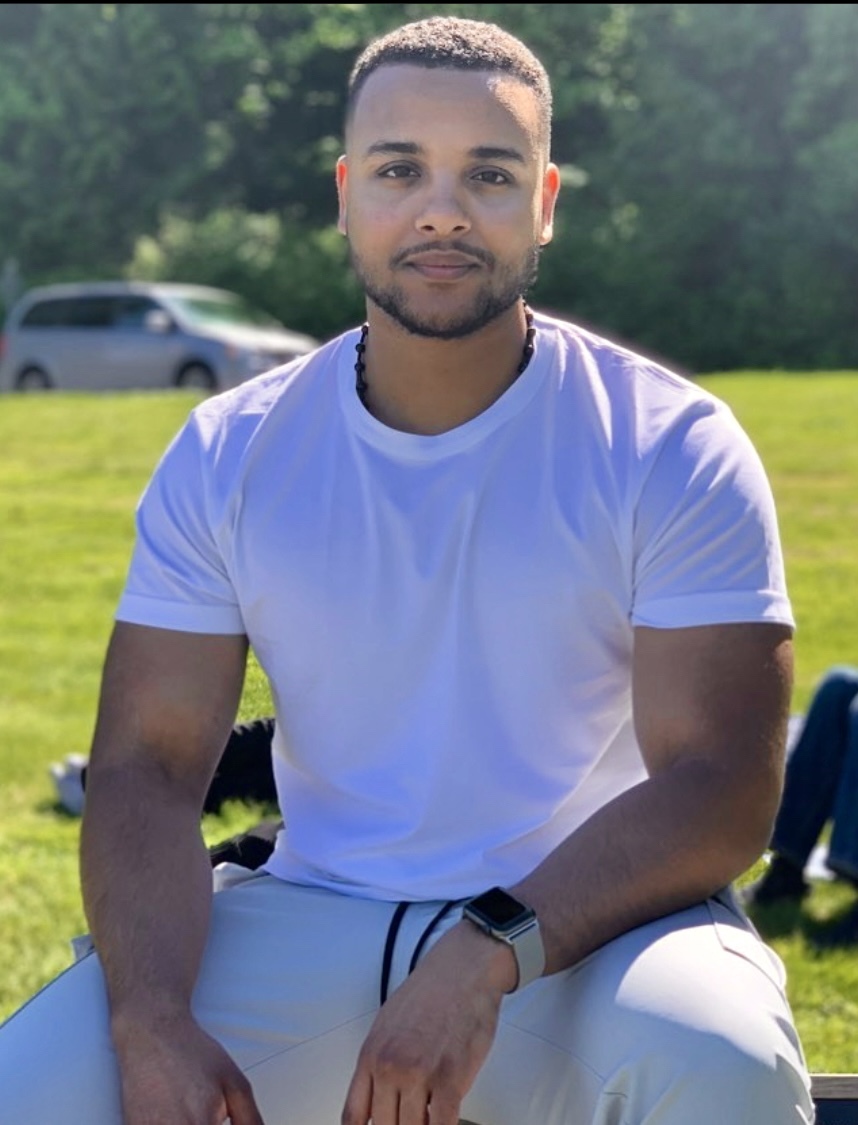 Ahmed Elsayed, he/him
Ahmed Elsayed, he/him
Degree: 1st year of Master of Kinesiology (MKin)
Teaching Assistant for KIN 442
What is your research/degree focusing on?
For my research, I am using clinical applications of exercise prescription to rehabilitate and promote health and wellness in a wide range of populations. These populations vary from post-operational populations learning basic functional movement to creating and altering varsity/elite athlete exercise programs.
Why is this field important to you? Why is it important to the School and/or to society?
Exercise has been a huge relief system for me mentally and physically. The need for exercise as an application to reduce chronic diseases, such as cardiovascular and metabolic syndromes, is something that is heavily researched and understood. Unfortunately, it is not implemented enough in healthcare, so I hope to be a part of that change!
What was your undergraduate degree in, and from which university did you graduate? How did your undergraduate studies influence your path to UBC KIN grad school?
I graduated from UBC Vancouver with a bachelor’s degree in Kinesiology. I enjoyed it so much that I decided to transition into a master’s degree in the same field. Learning about the multifaceted applications of Kinesiology was what initially drew me to the subject. Along with my passion for helping others, Kinesiology was a great program choice for me.
Is your work interdisciplinary? Do you work collaboratively in your research with other students and faculties?
Yes! My work is interdisciplinary and requires me to work in research clusters. I work collaboratively with a group of kinesiologists and undergraduate KIN students for CHANGE BC, where we deliver exercise programs to underserved communities in Northern BC.
What’s the most important thing you have learned in the program so far, and why?
If I had to select one significant thing from my time in Kinesiology, it would be the concept of knowledge translation. Everyone in Kinesiology understands the benefits of exercise, but how you present this understanding in a way that caters to different audiences is a lifelong skill and can be applied to anything you do in life.
Where do issues of inclusion find a place in your life or at work?
Everywhere! That is why tailoring is so imperative in kinesiology. Over the years you learn about different ways to regress and develop programs and concepts in a way that suits the patient and his/her various needs.
Who have been your mentors? What have you learned from them?
Spending my childhood in Sudan has given me a different perspective on health and I met my mentors while growing up there. At a young age, I learned firsthand about the importance of leadership and community development from being around my uncles and aunts, who worked in generally simple jobs. I hope to implement these lessons in my future career as a physician.
Many of our graduate students are athletes or incorporate exercise into their lifestyle. Do you incorporate physical activity in your life? If so which ones? Feel free to elaborate on this.
I am a pretty washed-up basketball player, but I played competitively in high school. Funnily enough, I would say that I could have made it to the NBA if it weren’t for my knees. I play mostly recreational football, and the occasional drop-in basketball in the summertime. I spend most of my leisure time resistance training, I find it can be a great stress relief especially after a tough finals’ week. I hope to one day complete in a local bodybuilding competition— mainly for the experience but also to show off my major gains.
Have you worked as a TA, Student Rep or in another leadership position? What have you learned from these experiences? And what would you advise prospective grad students about these experiences?
I currently work as a TA for KIN 442 here at UBC. I took this exact course the year before as an undergraduate student and learned to appreciate the course a whole lot more while being a TA. As an undergraduate student, you are eager to chase after the grade and forget to appreciate the course material. Now, I can honestly say that I have learned more in this course as a TA than when I was doing my undergrad.
This experience has helped me apply and develop my leadership skills. I would recommend it to any graduate student, not only to those wanting to pursue a career in teaching. My time as a TA taught me how to professionally manage and communicate with individuals that evidently share the same passion for health and wellness as I do. One piece of advice I have to prospective TA’s is to communicate any questions or concerns you have early on, and do not leave marking to the last minute!
What do you hope to do with your degree when you finish your grad studies?
I will be pursuing a career in medicine and use my knowledge of kinesiology, and exercise prescription, in conjunction with what I will learn in medical school. I hope to bolster my scope of medical practice when prescribing treatments for future patients as a future family physician!